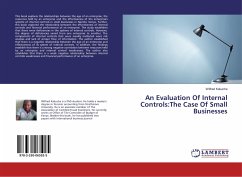According to Acosta (2021), "around 70% of most family businesses last only one generation in Ecuador" (p. 88). This is complemented by the fact that, according to Sotomayor (2022), "80% of companies worldwide are family-owned, so the low survival rate has alarming consequences for the sustainability of the productive sector" (p. 1044). Under these premises, this essay focuses on one of the characteristics of family businesses: their long-term orientation (defined by its acronym LTO) to maintain control and transfer it to the following generations: creator (first generation), institutionalizer (second generation) and expansive (third generation); in contrast to the Ecuadorian case with its decline in recent years.
Bitte wählen Sie Ihr Anliegen aus.
Rechnungen
Retourenschein anfordern
Bestellstatus
Storno








